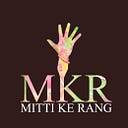MENTAL HEALTH ACT 2017
The mental health care act was passed in April 2017 and came into force in July 2017. The Act superseded the Mental Health care Act, of 1987 which was passed on 22 May 1987. This Act has been enacted to provide mental healthcare and services for persons with mental illness and to protect, promote and fulfill the rights of such persons during delivery of mental healthcare and services and for matters connected therewith or incidental thereto. The thrust of these acts signifies the government’s attempt to address an issue that has been neglected for decades, as according to the WHO report, 36% of Indians suffer from depression at any given time.
The act attempts to explain that the absence of mental illness does not guarantee mental health and a poor with poor mental health does not come in the category of people who have mental retardation, incomplete development, or subnormality of intelligence. The absence of mental health could be highly environmental and the individual should have certain rights and access to what improves his mental well-being and rehabilitation centers, etc.
This act decriminalizes suicide, and also imprisons (for 6 months) and/or fines (up to rupees 10,000) the people for the subsequent contravention of the Act.
Right of persons with mental illness
The Act incorporates several safeguards for persons with mental illness like
- Access to mental healthcare and treatment from mental health services run or funded by the appropriate Government encompassing within its domain three core principles- affordability, availability, and accessibility.
- Those living below the poverty line whether or not in possession of a below poverty line card, or who are destitute or homeless shall be entitled to mental health treatment and services free of any charge and at no financial cost.
- Another significant right is the right to equality and non-discrimination.
- Such mentally ill persons and their nominated representative have been given the right to information. This information includes right to know the provisions of this Act, nature of person’s mental illness and proposed treatment etc. in a language which they can understand.
- This Act also provides for the right to confidentiality to a mentally ill person in respect of his mental health, healthcare, and treatment subject to certain exceptions.
- These mentally ill persons have also been granted the right to access their basic medical records.
- It also provides provision concerning personal contacts and communication as to whom he/she wants to contact and whom he/she doesn’t.
- Persons with mental illness have been granted the right to free legal services as provided under the Legal Services Authority Act, 1987.
- They have been provided with the right to make complaints about deficiencies in provision of services to the concerned authorities.
In conclusion, the act is a crucial step to treating mentally ill people, and awareness is key to extend a helping hand to all the people around the world. Our mindsets and stereotypes about mental health need to change and accessing mental health centers and seeking help should be normalized.
Contributed by Nandita Menon content writer at Mitti Ke Rang
Our Social Media:
Website: https://www.mittikerang.org/
LinkedIn: https://www.linkedin.com/in/mitti-ke-rang-mkr-81b230120/
Twitter: https://twitter.com/mitikerang?s=08
Instagram: https://www.instagram.com/mitti_ke_rang?r=nametag
Facebook: https://www.facebook.com/Mitikerang/
YouTube: https://www.youtube.com/channel/UCLlifUqAQ_4vv8R4B5tqzPg
